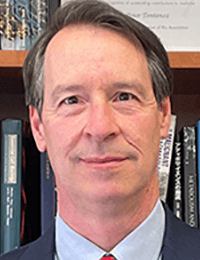The 2008 Stanley J. Korsmeyer Award: Gerald I. Shulman, MD, PhD
Gerald I. Shulman, MD, PhD, is the 2008 recipient of the Stanley J. Korsmeyer Award, in recognition of his outstanding contributions in the fields of insulin resistance and type 2 diabetes mellitus (T2DM). Dr. Shulman has pioneered the use of magnetic resonance spectroscopy (MRS) to non-invasively examine intracellular glucose and fat metabolism in humans. This has afforded a dynamic view of intracellular metabolism in humans, not before possible, that has led to several fundamental discoveries in our understanding of the regulation of liver and muscle glucose metabolism in humans and its dysregulation in patients with T2DM. His group developed MRS methods to directly quantify rates of hepatic glycogenolysis and gluconeogenesis in humans and made the paradigm shifting observation that gluconeogenesis and glycogenolysis make similar contributions to glucose production following an overnight fast. His group then demonstrated that increased hepatic gluconeogenesis is responsible for fasting hyperglycemia in patients with T2DM and that hepatic insulin resistance and increased hepatic gluconeogenesis were associated with non alcoholic fatty liver disease in patients with poorly controlled T2DM and were reversible with modest weight reduction. His group also developed MRS methods to directly quantify rates of muscle glycogen synthesis and demonstrated that decreased insulin stimulated muscle glycogen synthesis is the major factor responsible for insulin resistance in T2DM. In a seminal series of studies his group then developed MRS methods to measure intramyocellular concentrations of glucose-6-phosphate and glucose in humans and identified glucose transport as the rate-controlling step in this process. His group went on to show that this defect in insulin stimulated glucose transport is associated with increased intramyocellular lipid content and reversible with exercise. He then went on to elucidate the mechanism for fat-induced insulin resistance in both skeletal muscle and liver where net accumulation of intracellular diacylglycerol, due to increased fatty acid delivery/synthesis and/or decreased mitochondrial/peroxisomal fatty acid oxidation, activates novel PKCs that lead to deceased insulin signaling and insulin action in these tissues. This unifying hypothesis explains insulin resistance in both obesity and lipodystrophy as well as the insulin-sensitizing effects of thiazolidinediones, exercise, leptin, omega fatty acids, mitochondrial-uncoupling agents, adiponectin, and acetyl CoA carboxylase inhibitors. It has also led to the identification of several novel targets for the treatment and prevention of type 2 diabetes.
Dr. Shulman is currently Professor of Internal Medicine and Cellular & Molecular Physiology at Yale University School of Medicine as well as an Investigator of the Howard Hughes Medical Institute. He is also Associate Director of the Yale Diabetes-Endocrinology Research Center and Associate Director of the Yale Medical Scientist Training Program. Dr. Shulman completed his undergraduate studies in biophysics at the University of Michigan, and he received his M.D. and Ph.D. degrees from Wayne State University. Following internship and residency at Duke University Medical Center, he did an endocrinology fellowship at the Massachusetts General Hospital and additional postdoctoral work in molecular biophysics and biochemistry at Yale before joining the faculty at Harvard Medical School. He was subsequently recruited back to Yale and has remained there ever since. His work has been recognized with numerous honors and awards including the Outstanding Investigator Award from the American Federation for Clinical Research, the Diabetes Care Research Award from the Juvenile Diabetes Research Foundation, the Novartis Award in Diabetes, the Outstanding Scientific Achievement Award and the Distinguished Clinical Scientist Award from the American Diabetes Association. Dr. Shulman has been elected to the Institute of Medicine and the National Academy of Sciences. In addition to his research accomplishments, Dr. Shulman has mentored over seventy postdoctoral fellows and students, and 27 of these trainees have gone on to professorships at Yale and other institutions.
Related
Gerald Shulman digests his award in the Journal of Clinical Investigation


